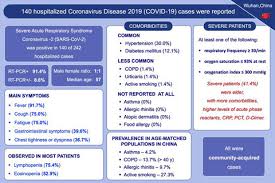COVID Symptoms: What You Need to Know

Importance of Recognising COVID Symptoms
The COVID-19 pandemic has consistently posed significant health challenges, making the understanding of its symptoms crucial for public health. Early recognition of symptoms can lead to timely testing, isolation, and treatment, ultimately reducing transmission rates and protecting vulnerable populations.
Common Symptoms of COVID-19
According to the latest guidance from the UK Health Security Agency, the most commonly reported symptoms of COVID-19 include:
- Fever or chills
- Cough
- Shortness of breath or difficulty breathing
- Fatigue
- Muscle or body aches
- Headache
- New loss of taste or smell
- Sore throat
- Congestion or runny nose
- Nausea or vomiting
- Diarrhoea
These symptoms can vary in severity and may appear two to fourteen days after exposure to the virus.
Emerging Symptoms and Variants
With the emergence of new variants, such as Omicron and its subvariants, researchers have noted variations in symptom presentation. Some patients report gastrointestinal issues more frequently, while others may experience a sore throat or nasal congestion, which were less common symptoms during earlier waves. The constantly evolving nature of the virus necessitates continual monitoring and adjustment of symptom recognition protocols.
What to Do If You Experience Symptoms
If you develop symptoms associated with COVID-19, it is crucial to take the following steps:
- Self-isolate to prevent spreading COVID-19 to others.
- Book a PCR test as soon as possible.
- Monitor your symptoms and seek medical advice if they worsen.
- Follow local guidelines regarding isolation and quarantine.
Conclusion
The significance of recognising COVID symptoms cannot be overstated, as it plays a vital role in controlling the spread of the virus. As new variants arise and symptoms evolve, public awareness remains a key factor in protecting individual and community health. Staying informed about current symptoms and health protocols can help ensure safety for oneself and others.








